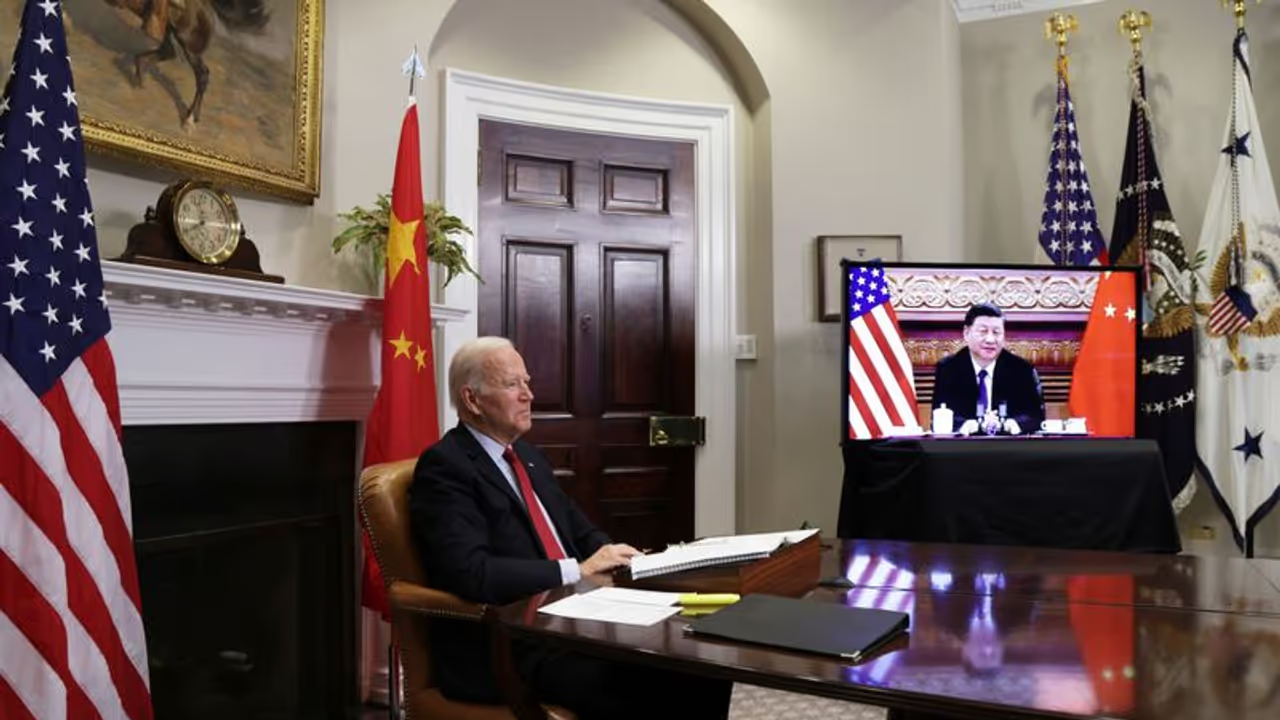Speaking to Xi on a television screen from the White House, Biden highlighted the need to resolve high-stakes disagreements, particularly those over trade and Taiwan.
US President Joe Biden and Chinese President Xi Jinping began a virtual summit Monday to request improved communication between the superpowers and what Biden referred to as "guardrails" to avert war. Speaking to Xi on a television screen from the White House, Biden highlighted the need to resolve high-stakes disagreements, particularly those over trade and Taiwan. According to Biden, it is their job as leaders of China and the United States to guarantee that rivalry between our countries does not devolve into violence, whether intentional or unintentional. Simply said, this is a competition. He stated that they would have a "frank" talk.

Xi, speaking from Beijing, referred to Biden as "my old buddy" but stated that the enemies needed to work more closely together. He went on to say that they confront several problems jointly and that as the world's two largest economies and permanent members of the UN Security Council, China and the US must improve communication and collaboration. The two leaders had spoken on the phone twice since Biden's inauguration in January. Still, with Xi reluctant to go overseas due to the epidemic, an online video conference was the only option short of a face-to-face summit.
Also Read | US President Joe Biden to meet Chinese leader Xi Jinping virtually today
The battle over Taiwan, a self-governing democracy claimed by China, has received the most attention in the conference's run-up. Biden's allies have framed the conference as a chance to help prevent tensions from rising. Both Biden and Xi stressed the need for their countries to cooperate on significant global challenges, like Covid-19 and climate change. Xi added that a solid and stable China-US partnership is required to protect a peaceful and stable world environment.
Relations between the superpowers deteriorated during Donald Trump's administration, when he initiated a trade war with China while criticising Beijing's reaction to an international investigation into the origins of the Covid epidemic in the Chinese city of Wuhan. Biden has reframed the conflict in a broader sense as a conflict between democracy and authoritarianism. He received a lift on Monday when he signed a $1.2 trillion infrastructure bill into law, the largest of its type in more than a half-century. Biden sees the programme as a critical step toward catching up with years of heavy Chinese government investment, demonstrating that democracies can compete.
Also Read | China facing biggest COVID-19 outbreak caused by Delta variant, affecting 21 regions
In recent years, China has increased military activity near Taiwan, with a record number of jets breaching into the island's air defence zone in October. The US said it supports Taiwan's self-defence but is unsure if it will act directly to assist. Xi hasn't left China in over two years, and Biden chastised him for missing the recent COP26 climate meeting in Glasgow and the G20 summit in Rome.
